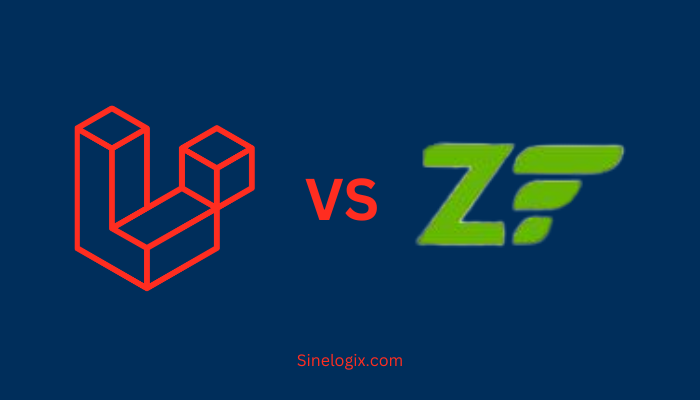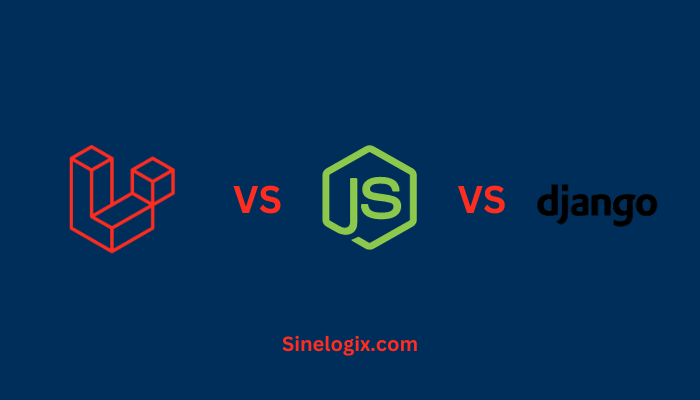In the ever-evolving landscape of PHP frameworks, Laravel and Zend stand out as formidable choices, each bringing its own strengths and characteristics to the table.
This detailed article aims to explore the intricacies of Laravel and Zend, providing an in-depth understanding for developers to make informed decisions based on the specific needs of their projects.
Features
Laravel and Zend are both PHP frameworks, but they approach web development with distinct philosophies and feature sets.
Laravel, known for its elegant syntax and developer-friendly experience, offers a robust feature set. It includes an expressive ORM named Eloquent, a powerful templating engine known as Blade, and a convenient query builder. Laravel follows the convention over configuration principle, reducing the need for developers to make countless decisions.
Zend, on the other hand, stands out with its modular and component-based architecture. It offers a collection of professional PHP packages that developers can use independently. Zend’s features include a robust MVC structure, data encryption tools, and a powerful form component. The framework emphasizes code reusability and follows a configuration-centric approach.
Market Usage Statistics
Analyzing the market usage statistics of Laravel and Zend provides insights into their real-world adoption. As of the latest data, Laravel has gained widespread popularity, particularly in the startup and mid-sized project space. Its vibrant community and rich ecosystem of packages available through Composer contribute to its success.
Zend, while not as widely adopted as Laravel, has carved a niche in enterprise-level projects. Its focus on modular architecture and professional-grade components makes it a preferred choice for complex and large-scale applications.
Popularity Over the Years
Exploring the historical popularity of Laravel and Zend provides insights into their evolution and sustained relevance. Laravel has witnessed a meteoric rise in popularity since its inception, becoming one of the most sought-after PHP frameworks. Its commitment to modern development practices and a focus on developer experience contribute to its widespread adoption.
Zend, with a more measured growth trajectory, has maintained a strong presence. Its modular architecture and focus on enterprise solutions appeal to developers working on projects with extended development cycles.
Pros and Cons of Laravel and Zend
To make informed decisions, developers must weigh the strengths and weaknesses of each framework.
Laravel’s Pros:
- Elegant syntax and developer-friendly features.
- Large and active community with extensive documentation.
- Rich ecosystem of packages available through Composer.
- Rapid application development (RAD) capabilities.
Laravel’s Cons:
- May not be as suitable for large, enterprise-level projects with complex requirements.
- Convention over configuration may limit flexibility in certain scenarios.
Zend’s Pros:
- Modular and component-based architecture, offering flexibility and code reusability.
- Professional-grade components for enterprise-level projects.
- Focus on security, with built-in data encryption tools.
- Suitable for large-scale applications with a configuration-centric approach.
Zend’s Cons:
- Steeper learning curve, especially for beginners.
- Smaller community compared to Laravel.
- More verbose configuration may be required for certain tasks.
Applications
Understanding the applications of Laravel and Zend is crucial for choosing the right framework for a given project.
Laravel Applications:
- Content management systems (CMS).
- E-commerce platforms.
- Small to medium-sized web applications.
- Projects where rapid development is a priority.
Zend Applications:
- Enterprise-level applications.
- Large-scale projects with a focus on security.
- Projects requiring modular and reusable components.
Laravel Vs Zend: A Detailed Comparison
Similarities and Differences in Laravel and Zend
While Laravel and Zend share some commonalities as PHP frameworks, they differ in their design philosophies and approaches.
Similarities:
- Both frameworks follow the MVC architecture.
- Use Composer for package management.
- Have active communities contributing to their ecosystems.
Differences:
- Laravel emphasizes simplicity and ease of use, employing convention over configuration.
- Zend adopts a modular and component-based architecture, offering greater flexibility and code reusability.
- Laravel’s expressive syntax appeals to developers seeking a streamlined experience.
- Zend’s focus on enterprise-level security and configuration-centric approach provides control over the application’s behavior.
Laravel Vs Zend: Which Should You Choose?
Choosing between Laravel and Zend depends on the specific requirements of a project, the development team’s expertise, and the development goals.
Laravel is Ideal for:
- Rapid application development.
- Startups and smaller teams.
- Projects where convention over configuration is an advantage.
Zend is Ideal for:
- Enterprise-level applications.
- Large-scale projects requiring modular and reusable components.
- Projects with a focus on security and a configuration-centric approach.
Alternatives of Laravel and Zend
While Laravel and Zend are popular PHP frameworks, exploring alternatives can help developers find the right fit for specific projects.
Symfony:
- Suitable for large-scale projects with a modular and flexible architecture.
- Ideal for developers comfortable with a configuration-centric approach.
CodeIgniter:
- Known for its simplicity and small footprint.
- Suitable for small to medium-sized projects with straightforward requirements.
Yii:
- High-performance framework with code generation capabilities.
- Ideal for projects requiring rapid development and efficiency.
Related Articles:
Conclusion
In conclusion, the choice between Laravel and Zend is a nuanced decision requiring careful consideration of various factors. Both frameworks have their strengths and weaknesses, and the right choice depends on the specific needs of the project.
Laravel excels in rapid application development and is well-suited for startups and smaller teams. Zend, with its modular architecture and focus on enterprise solutions, is an excellent choice for large-scale applications requiring security and code reusability.




